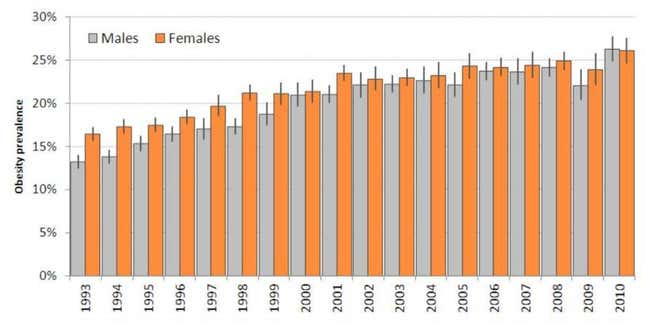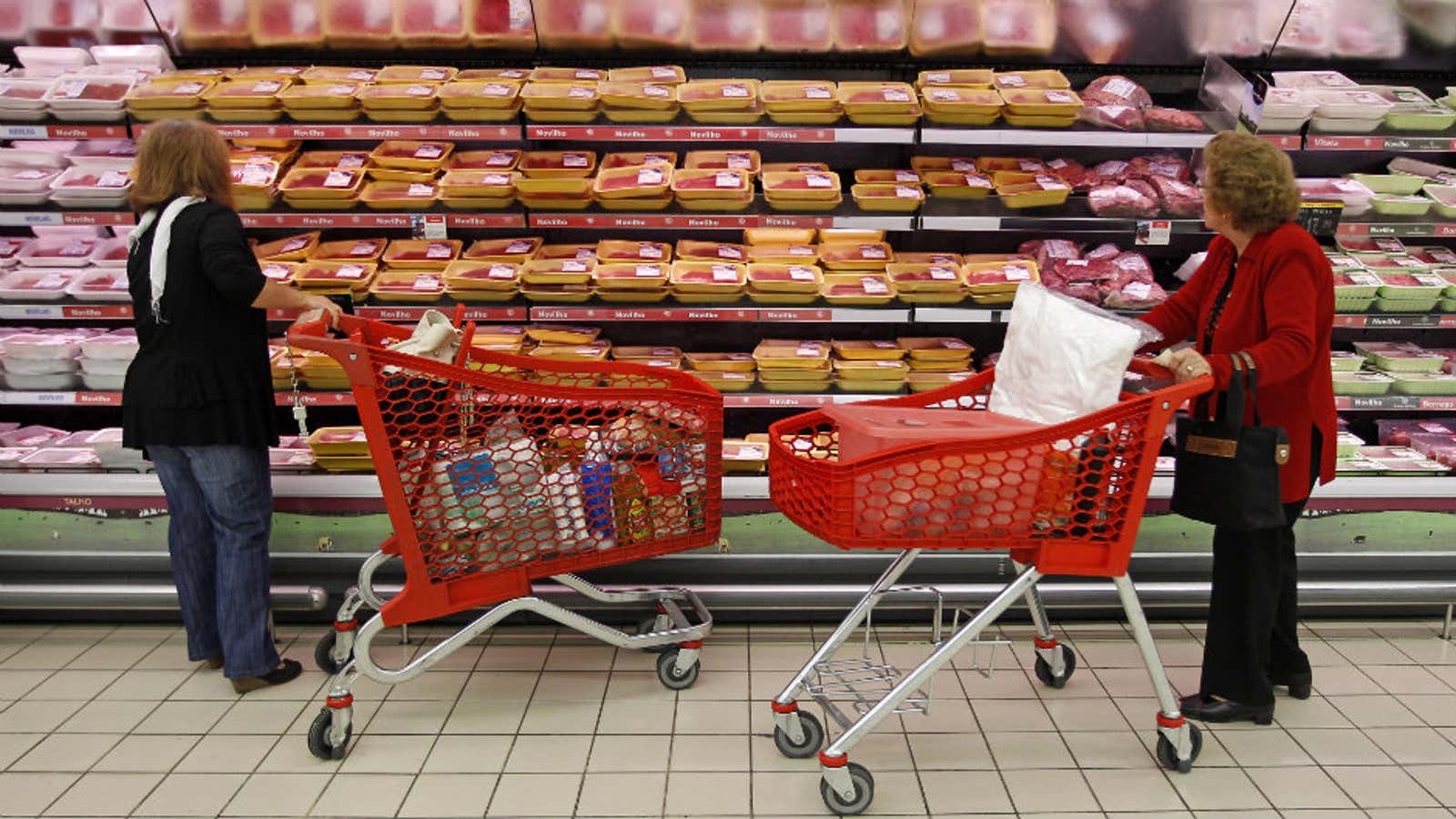Poverty is associated with a great number of health problems. One relatively recent health crisis largely attributed to poverty is obesity. According to the World Health Organization, obesity rates have more than doubled since 1980, exceeding 500 million worldwide by 2012 with 1.4 billion overweight. In other words, approaching one tenth of the world population is currently obese. And while initially obesity was considered a first-world problem, now it occurs just as commonly in many developing countries, often alongside malnutrition.
Given the scale of the crisis and the enormous economic and welfare cost, many scholars have attempted to establish its causes and in particular, why poor people are most at risk. Among the factors frequently proposed to link poverty and obesity are the increased availability of cheap high-calorie food and a lack of knowledge about what constitutes a healthy diet.
In other words, it is commonly assumed that if people know what type of food is good for them and have easy access to it, they could avoid becoming obese, even if they continue living in poverty. Many public health campaigns have therefore attempted to educate people about their nutritional needs, inform them about food content and nutritional value, and provide them with vouchers to make healthy food more easily accessible.
Trends in UK adult obesity

Psycho-hunger
But there might be a psychological mechanism at play here linking poverty to obesity. If so, it would mean that health campaigns are ineffective—and would certainly explain why the obesity numbers keep rising.
Many creatures exhibit an instinct when faced with scarcity, namely to pile up calorie reserves to help them outlive potential hunger. Could it be that in the same way as a bear prepares for the winter by consuming amounts of food far exceeding its daily needs, people who are exposed to poverty and recession consume excessive amounts of food to survive what they may perceive as an impending economic winter?
There is certainly evidence that when food is scarce or insecure, both humans and animals pre-emptively increase their consumption. Experimental research on animals’ eating behavior has shown that such patterns of anticipatory eating quickly emerge in response to cues signalling periods of food scarcity. Similarly, research with people in natural settings has identified a link between food insecurity and compensatory binge-like eating.
What remains unclear is whether cues of poverty and economic recession could trigger the same instinctive eating behavior even when food is unlikely to become scarce or unavailable. We tested this possibility in two experimental studies conducted with fairly affluent samples of students in Australia and the UK. There were 53 students in the first study and 54 in the second, and the results will be published in the coming months.
The slide-show test
In the Australian study we had participants come to the laboratory to complete two ostensibly unrelated tasks—examining perceptions of the economy and enjoying food while watching movies. As a first task we had them view a slide show about the future of the Australian economy. Half of the audiences watched a show about impending economic recession and half watched one about moderate economic prosperity. Following the slide show, both groups indicated the extent to which they believed the economic future of Australia will be marked by recession or prosperity.
We then had everyone watch two short videos, each of about four minutes in duration, which were about art and history. With each video the participants were served two plates of snacks and invited to eat as much as they liked. With the first video they were served two types of savory snacks—one low-fat, low-calorie option (rice crackers), and one high-fat, high-calorie option (cheese crackers).
With the second video, the participants were served two types of sweet snacks—one low-calorie option (grapes), and one high-calorie option (chocolates). Unbeknown to the participants, we weighed the plates before and afterwards.
The findings revealed that those participants who had previously seen a slide show about upcoming economic recession and agreed that Australia’s future would be gloomy consumed more calories overall. They also showed a preference for the high-calorie foods, eating greater amounts of cheese crackers and chocolates than rice crackers or grapes. And when asked how tasty the food was, participants who had watched the slide show about scarcity found the high-calorie snacks tastier.
Importantly, these findings cannot be explained by people feeling more anxious after viewing the pessimistic forecast—the effect of anxiety was statistically ruled out. Similarly, the findings remained after accounting for participants’ socio-economic status, gender, level of hunger and body-mass index. In short, after hearing about an impeding economic recession, people choose high-calorie food, eat more of it, and enjoy it more.
The social comparison test
In our study in the UK, we induced different participants to feel either poor or well off. We did this by asking them to compare themselves to people either living well or living in poverty, then asked them to think about how they were similar to the respective group. We then had them complete the video-snack task. The results were striking: participants who were induced to feel poor ate about 50% more calories than people induced to feel well off. As in the first study, we made sure that anxiety, socio-economic status, gender, level of hunger, and body-mass index were not responsible.
Importantly, neither the slide show nor the social-comparison manipulations mentioned food in any way. Instead, we referred to employment opportunities, house affordability, and strategies people use to make ends meet as a means to present cues of poverty and economic crisis. Yet even keeping food well away from the subject matter was sufficient to elicit the instinctive response to pile up calorie reserves by eating more and selecting high-calorie options.
Our findings therefore point to a previously undetected pathway—an instinctive increase in calorie intake through poverty and economic gloom, which can lead to obesity. This should be food for thought, if you will forgive the pun, for public health campaigners.
